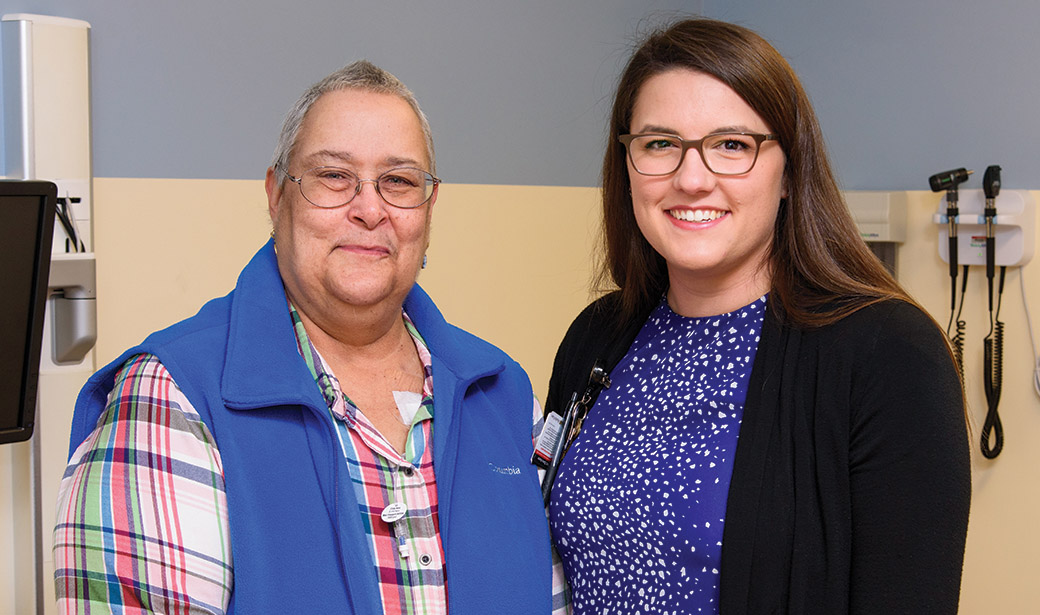A cancer diagnosis can be overwhelming. At MU Health Care’s Ellis Fischel Cancer Center, there’s a growing team ready to support patients during each step of the process.
At Ellis Fischel, a multidisciplinary team of doctors works together to ensure the best care possible. A nurse navigator guides patients through the process from diagnosis through treatment. There is now another member of the team — a patient navigator — who helps remove any additional burdens.
A nurse navigator assists with clinical questions regarding diagnosis, treatment and timeline. A patient navigator takes care of the details that typically accompany a cancer diagnosis.
“They identify areas where a patient might need resources by meeting them on their first visit and going over a distress tool, establishing a relationship so they are comfortable reaching out,” said Amy Hawkins, RN, Ellis Fischel practice manager.
Patient navigators assist with transportation, appointment scheduling and paperwork. They sometimes do much more.
“Often the patients will confide in the navigators due to their relationship,” Hawkins said. “They are non-clinical and approach it like a professional friend. I think this quickly builds trust. The navigator reports any concerns to clinical staff that might interfere with a patient coming to appointments, follow-ups and getting medication.”
Elyce Cagle is the patient navigator for the breast cancer team at Ellis Fischel. She called the role her “dream job.”
“I visit the patients while they are receiving treatment, and I really get to know the entire family,” Cagle said. “I get to build a deep relationship and get to know a more complete history of the patient than just the medical side.”
Cagle said she schedules appointments, requests medical records for physicians and works very closely with the breast cancer nurse navigator and social worker to troubleshoot patient problems or answer questions. On busy days, she and the nurse navigator chat almost hourly.
“I had a patient who finished surgery and chemotherapy — she was thanking me for everything. I kept telling her that I am here for you and I should be thanking you,” Cagle said.
Her most challenging conversations usually occur after a cancer diagnosis. She schedules a meeting with each patient in which she typically meets with them for an hour or longer to make sure their financial, transportation and scheduling needs are met. But providing empathy is just as important as collecting information.
“It can be an extremely difficult and emotional meeting, and I just want to hug them,” Cagle said.
The patient navigator program started more than a year ago, and there are plans to expand from four navigators to six, so different types of cancer will have their own patient navigator. It’s an investment in patient-centered care that sets Ellis Fischel, the oldest cancer center west of the Mississippi River, apart from other cancer centers in the region.
“The navigator’s role is to navigate the patient through their cancer journey, getting them to the right place at the right time,” Hawkins said. “If it’s made the process even a little less stressful for the patient, it’s worth it.”


